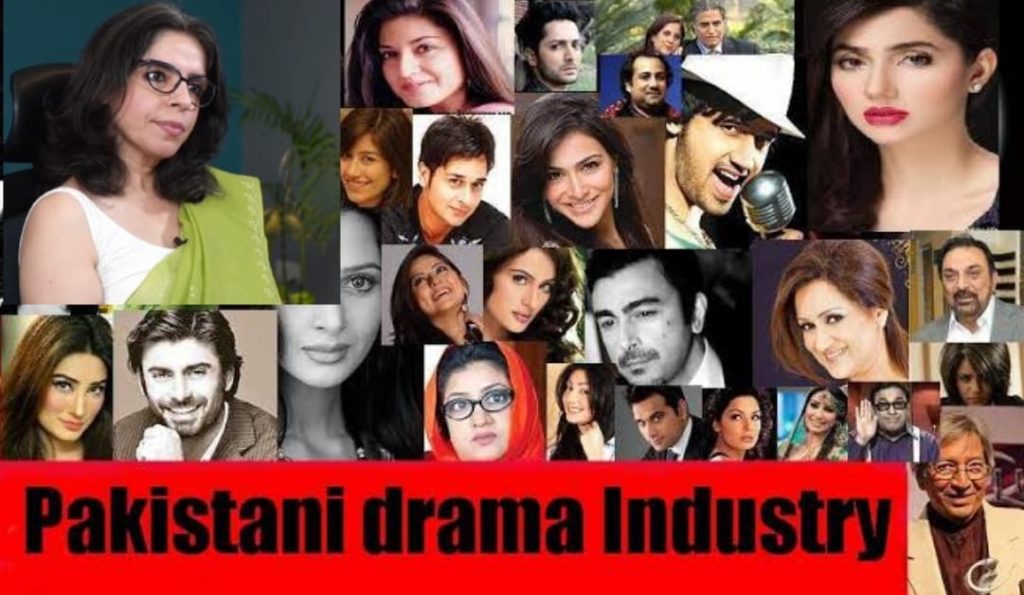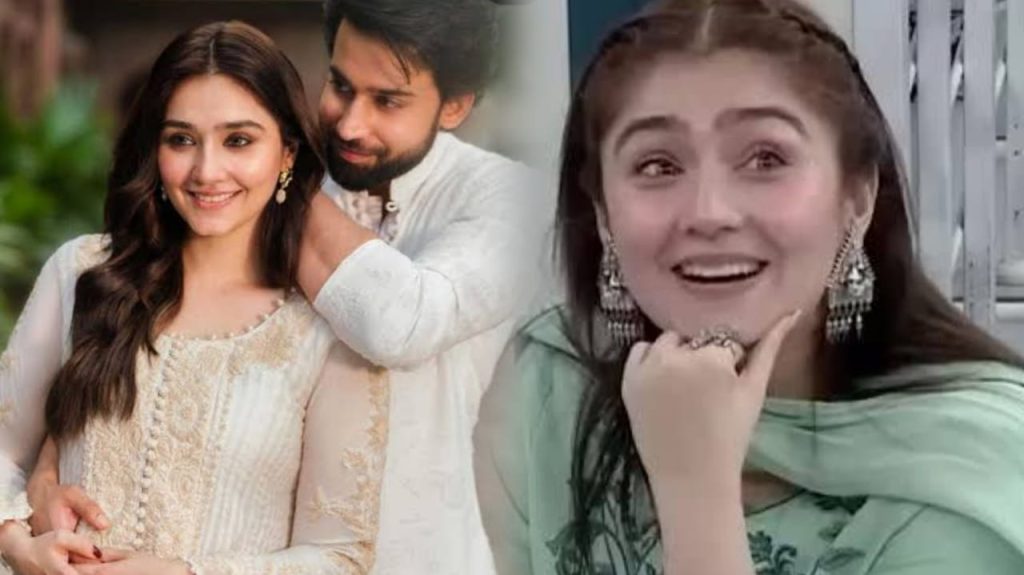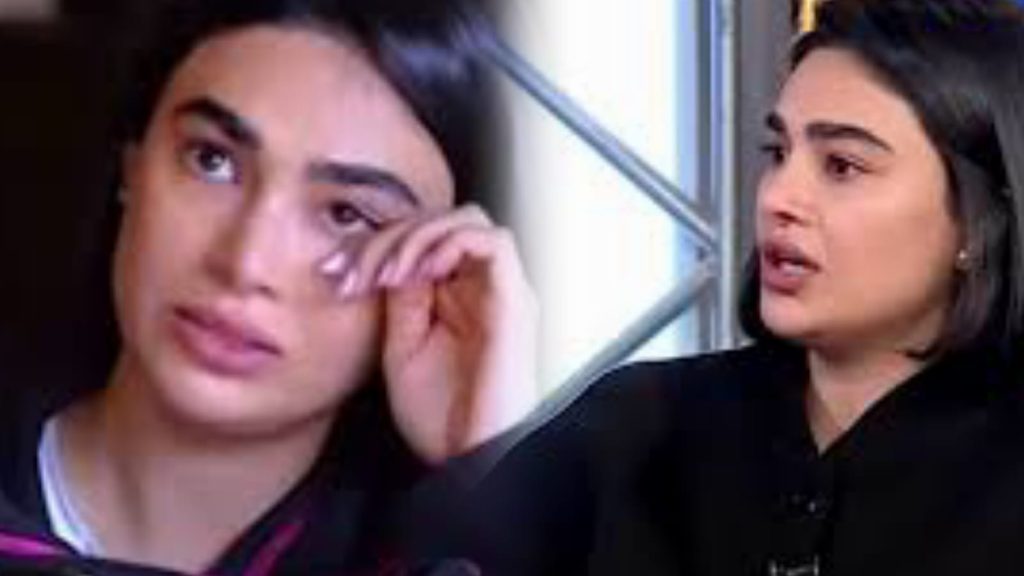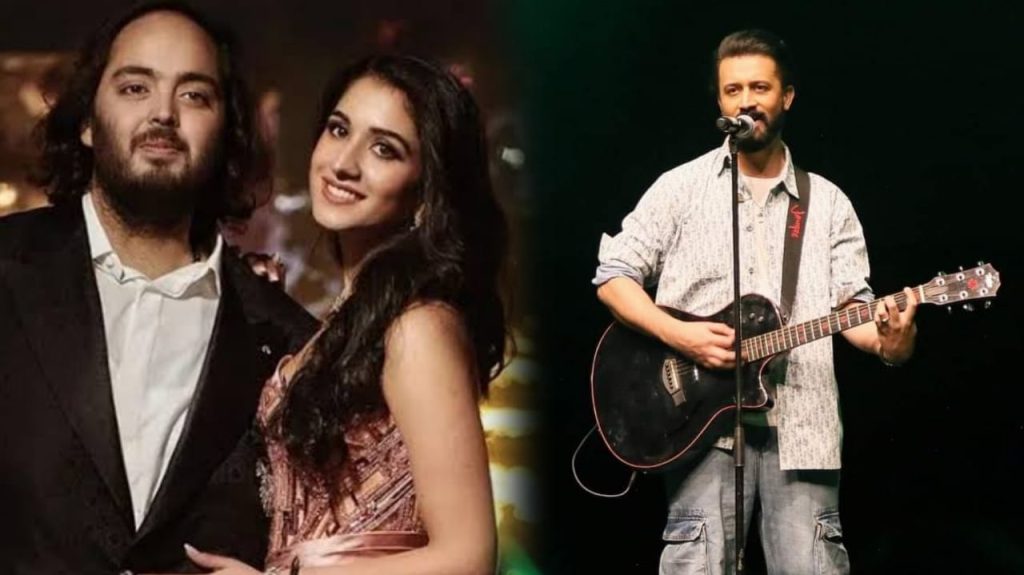Currently, many Pakistani dramas are being viral for some controversial scenes and making the social media headline. The latest drama serial Angna also caught a lot of viewers’ attention for a particular viral slap scene of Rabab and Ali that went viral for all the wrong reasons.
Even after the scene went viral, the stars of the drama Ali Abbas and Rabab Hashmi recently sat down for an interview to share their side of the story.
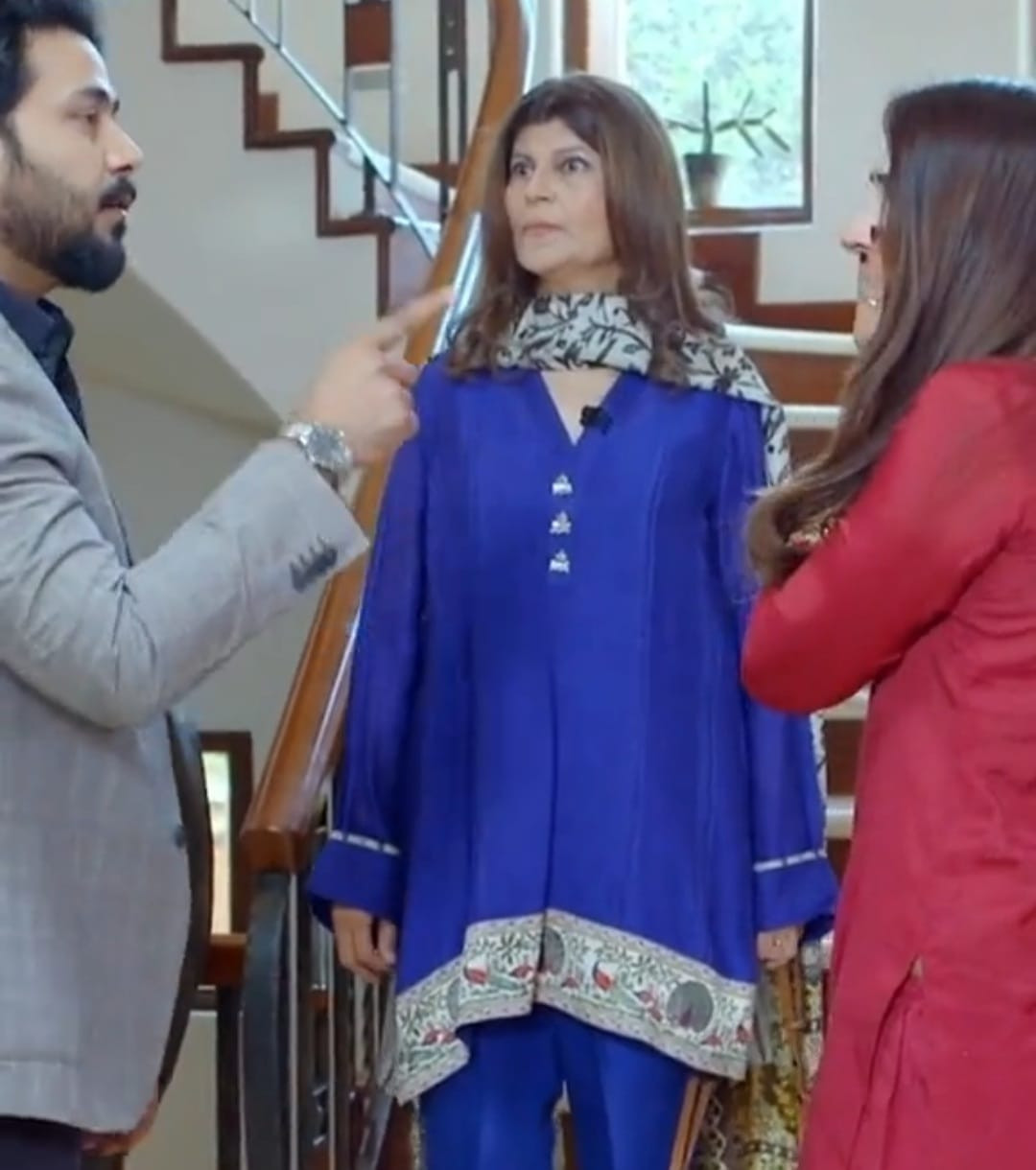
In the scene Ali’s character, Zain, slaps his wife, played by Rabab, to please his mother, which blew up recently on social media, and soon the clip spread all over the internet Netizens pumped up.
They raised their voice against writers and actors for glorifying domestic abuse and forcing women to stay in toxic relationships.
But according to the actors, there’s more than that. Ali’s character has a toxic relationship with his mother, she saw his fair share of bad days.
Meanwhile, the female character Eshaal played Rabab trying to save herself and her husband from the dysfunctional dynamic.
Rabab and Ali Abbas share their stance on the drama and viral scene
In the viral scene, the mother-in-law played by one of the veteran actors Rubina Ashraf disapproves of her daughter-in-law Eshaal’s dressing and ask her to change. Before her mother-in-law’s entrance, the husband is happy with the outfit and is seen complimenting his wife.
When the mother asked her to change the clothes without giving any rational reason behind it, the husband also retracts his statement and asks Eshaal to go. But when she calls him out, he slaps her and accuses her of lying.
On this scene and Angna’s story, Rabab shared, “It’s so interesting. When this script first came to me, I thought of it the same way as any other conventional script… But, when I read Eshaal’s part, I felt there was a possibility to educate [the audience] with her track.”
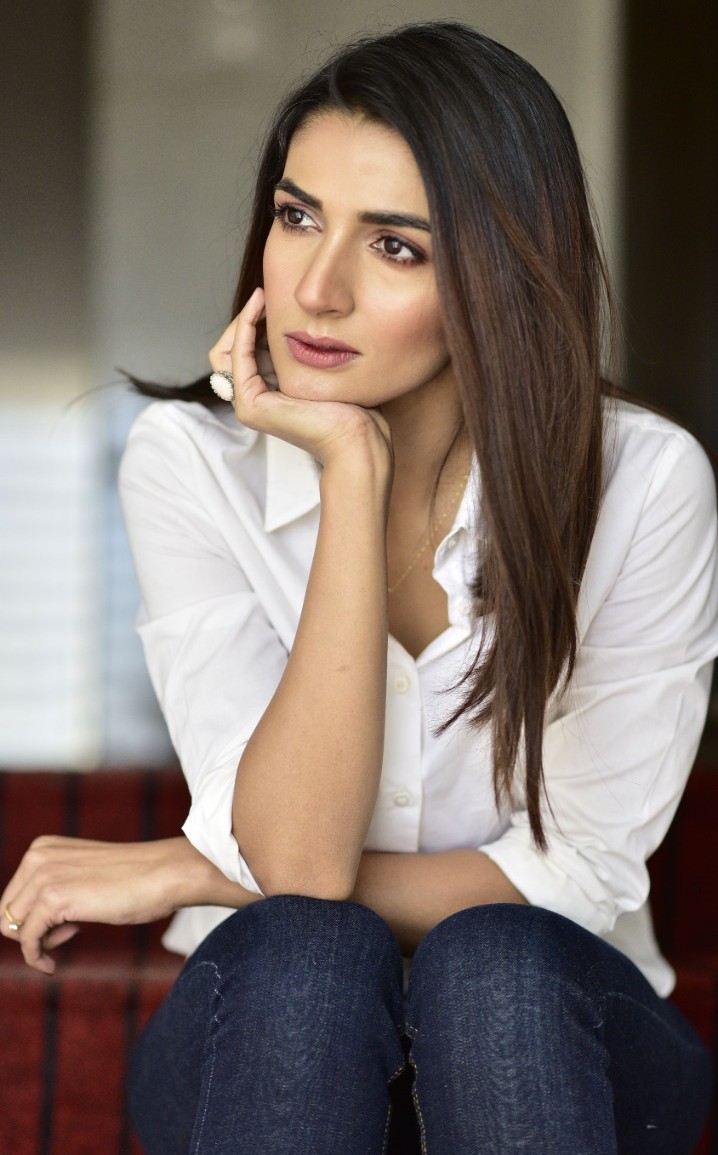
She continued, “When the project went on air, the feedback we got made us realize that people were relating to it. That means dysfunctional characters [such as Zain] are a part of society.
There are relationships where the mother-in-law is dominating and controlling, husbands who behave a certain way because they come from a dysfunctional household. I felt like normally, we wouldn’t be having these conversations. Normally we’d show a dominating man and a meek woman, but here the equation is reversed.”

She even explained the role reversal, she added, “It takes her a while to understand that [her husband] is the victim. He isn’t the one oppressing her, he’s the one being oppressed, and it’s an outcome of how he has been brought up.”
‘It takes time for you to assess’ – Rabab
Rabab reflects on the character Ehsaal, “I think, as Eshaal, an important thing is that being independent and strong does not mean outright rejecting your home and walking away.

Sometimes, when you get into a new relationship, it takes time for you to assess what is exactly going on. In our society, ending a marriage is not easy. For a girl, it is very important to understand that the dynamics you have married into are different from what you come from.”
Ali Abbas jumped in to defend Rubina Ashraf’s character by stating that she is a product of difficult circumstances. He asserted, “Rubina Ashraf’s character represents a very different story.
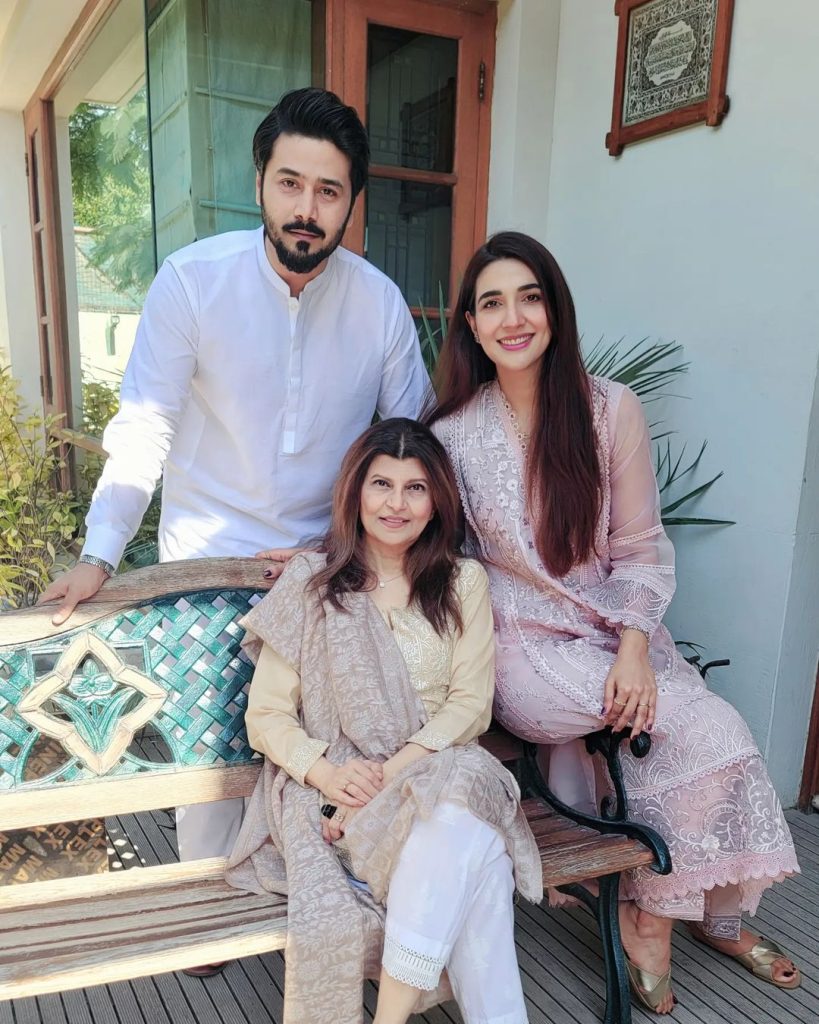
She is a single mother who has faced many hardships in life and has become very protective of her son. Some people have a different way of showing their love. She’s not an evil character, she’s just one person who has lived her life in tough times.”
‘Eshaal doesn’t represent a helpless woman’ – Ali Abbas
Ali further added regarding Eshaal’s character. “Eshaal’s character doesn’t represent a helpless woman. She’s somebody who took her time to first grasp and understands what exactly is happening. She’s a responsible person who ran her family business. If she runs a business, she has to be practical, not emotional.”

He continued, “She wouldn’t go straight back to her parent’s house and tell them what her husband and mother-in-law are like. She moves forward with responsibility and she has developed some feelings for her husband, which is very natural. She can’t just leave him when she can see that he’s begging for her forgiveness.”
When an interviewer asked them, “Whether it was wise to encourage acceptance in the face of abuse and feed into the trope of women being able to “save” abusive men.” Rabab immediately responded, “She has these small windows to realize that when the mother is not in the picture, he’s a different person.
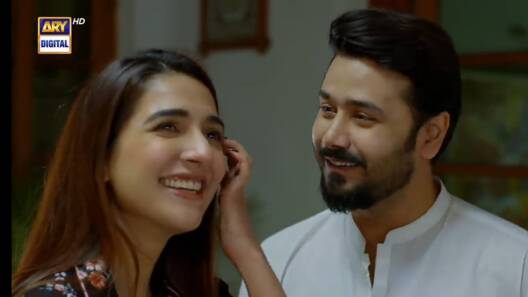
She’s grasped that he’s not a bad person and that she wants to live with him, there’s love developing there. More than denial, there have been stages of her acceptance.” She added, “Eshaal can either just save herself, or she can save Zain as well.”
Ali shared his stance on the matter, “The pattern of doing something and then apologizing exists in alcoholics, drug addicts or psychologically disturbed. There’s nothing like that going on here. He’s a kind man who tries to take care of his wife.”
‘There’s no glorification of abuse’ – Rabab
Rabab concluded the interview by highlighting the abuse in the drama. She stated, that there is no “glorification” of abuse involved in the story, Rabab shared, “We are in no way supporting abusive marriages. We’re not saying you should accept abuse.
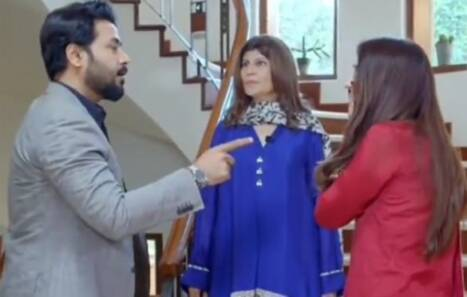
We aren’t glorifying it, we’re telling the audience that if this happens in your life, there will be many negative consequences. You can see, that they are all tormented. None of them are happy.”
There are a lot of dramas currently released that portrayed domestic violence, and men overpowering women on national television. A few months back, Aye-Musht-E-Khaak’s violent scene horrified viewers and made everyone stunned.
What do you think of the story? Tell us in the comments section below.












